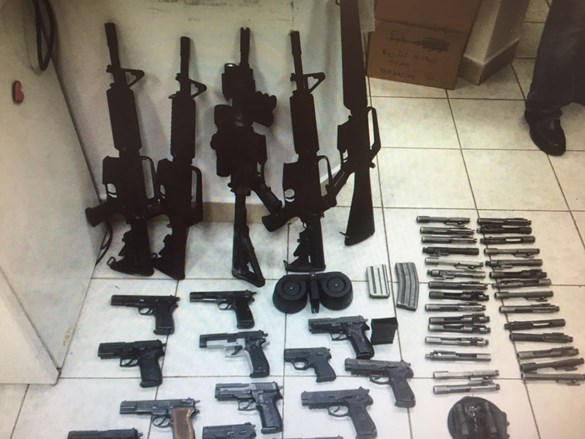How Can We Prevent the Next “Lone Wolf” Attack?
Young, unaffiliated “lone wolf” terrorists present a huge challenge to intelligence agencies across the world. They are unpredictable, untrackable and almost impossible to stop in advance. As more countries face this growing threat, we spoke to a senior IDF official to see what steps can be taken.

The aftermath of a December 2015 car ramming attack in Jerusalem, in which 11 were injured
Since October 2015, Israel has faced a new wave of terror, mostly carried out by lone wolves. The attacks have mainly been comprised of stabbings and car rammings, now being imitated by terrorists in Europe.
1. Build an attacker profile
A lone wolf attacker can be anyone, but they’re more likely to fit a certain profile. In the past nine months, the IDF has been extensively researching lone wolf attacks and finding patterns that can help defend against them.
The Palestinian terrorists who carry out these attacks are most likely to be young, usually below 24 years of age, and sometimes even minors. About 90% of them are male and attackers usually come from the same six or seven villages. These attackers are motivated by the perceived success of terror attacks carried out by family members or others in their villages, and are inspired to attack in turn. Terrorists often strike the same five or six locations, turning places like the busy Gush Etzion Junction into a hotspot of stabbing and car ramming attacks.
2. Track the warning signs
Most people who fit the profile of an attacker will never become one. In order to find the people who present a high risk of radicalization, intelligence will flag individuals who are exhibiting warning signs. Those signs can be posts on social media that glorify terror, express suicidal thoughts, or express intent to attack. If a potential attacker hasn’t driven a car in six months, but suddenly rents an unregistered vehicle, it could indicate that he or she is about to carry out a car ramming attack.

![]()
“We will die for the sake of the homeland. Al-Aqsa – we are under your command” and a song praising attacks, posted to Facebook before attempting a stabbing in October
Intelligence officers analyze high-risk cases, and if a potential attacker poses a threat, there are different approaches that security forces can take. Arresting the terrorist before they can carry out an attack can save dozens of lives. Sometimes, though, the situation calls for a discussion with a potential attacker’s family to bring their social media posts to their attention, or notifying the local security forces.
3. Don’t let weapons fall into their hands
While terror itself can be impossible to prevent, the number of casualties can be reduced by ensuring that weapons are harder to get. While there’s no way to ban knives and cars, two of the weapons of choice in the wave of terror, reducing the number of illegal guns in Judea and Samaria can save countless lives.
Improvised Carlo Gustav rifles have been used in shooting attacks by Palestinian terrorists, including the Sarona Market shooting in Tel Aviv. These guns are cheap and built in local workshops throughout Judea and Samaria. Weapons dealers sell them to local criminals and terrorists alike. The IDF has shut down about 20 gun workshops in 2016, targeting terror at its source. Additionally, the IDF also intercepts and arrests weapons smugglers.

Smuggled weapons seized by the IDF on July 19th
4. Fight conventional terror and incitement
Even as lone wolf attacks rise, established terror groups like Hamas continue operating. The IDF has deconstructed five Hamas explosive labs this year, and Hamas continues to fund, arm, and mobilize terrorists on a daily basis. Hamas is also a main source of incitement to violence against Israelis. By praising and celebrating attacks and terrorists, more young people are motivated and inspired to do the same. Other sources of incitement can be preachers, friends on social media, television programs, and even music. By recognizing incitement to violence and reacting to it, terror attacks can be prevented.
The more terror attacks are thwarted, the more communities, villages, and families see that terror doesn’t pay. This means less young people are inspired to carry out attacks of their own, which means less lone wolf terrorism overall.

